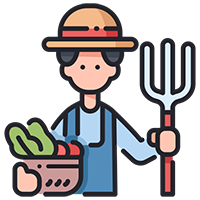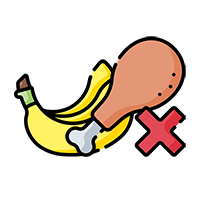This initiative considers that the analysis of the contribution of agricultural cooperatives should be done within a more general analysis of the contribution that family farming makes to society, since cooperativism/associativism is considered to be a key instrument for improving the situation of family farming in the 5 continents.
WHAT IS IT?
“Family Farming (which includes all family-based agricultural activities) is a means of organizing agricultural, forestry, fisheries, pastoral and aquaculture production which is managed and operated by a family and predominantly reliant on family labor, including both women’s and men’s. The family and the farm are linked, co-evolve and combine economic, environmental, social and cultural function”. (Conceptual definition by the International Steering Committee for the 2014 IYFF. FAO, 2013).
Family farming…

Creates employment within and beyond farms themselves

Helps to expand rural economies

Prevents depopulation and supports the area

Conserves and restores biodiversity and ecosystems

Uses production methods that can help to reduce or avert the risks of climate change.

And ensures the transfer of knowledge and traditions from generation to generation
In figures
Source: FAO

Family farming produce more than 80% of the food in the world

Family farms manage around 70-80% of farmland worldwide

More than 90% of farms are run by an individual or a family

WOMEN provide almost 50% of farm labor, but they only hold 15% of farmland.

46% of the world’s people live in rural areas

500 million agricultural holdings are family farming

Family farming is the main source of income and employment of 70% of people that live in poverty

75% of people suffering from hunger live in rural areas, especially in developing countries

50% of people suffering from hunger are smallholders and people engaged in traditional or subsistence farming, and they are particularly vulnerable to food insecurity, malnutrition, discrimination and exploitation
United Nations Decade of Family Farming 2019-2028
 On 17 December 2017, the United Nations General Assembly unanimously and supported by 104 countries, adopted the Resolution (A/RES/72/239) declaring 2019-2028 as the United Nations Decade of Family Farming (UNDFF).
On 17 December 2017, the United Nations General Assembly unanimously and supported by 104 countries, adopted the Resolution (A/RES/72/239) declaring 2019-2028 as the United Nations Decade of Family Farming (UNDFF).
The Decade of Family Farming is the result of a campaign led by family farming organizations and other civil society organizations to improve the quality of life of family farmers around the world.
The UNDFF is a historic opportunity to stimulate the development of public policies and investments in favour of family farming from a holistic perspective, thus enhancing the transformative power of family farmers. Effective implementation of the Decade would make an enormous contribution to the achievement of Sustainable Development Goals (SDG).
